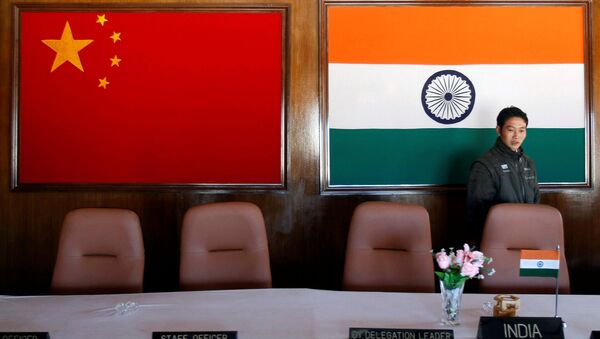In what could be seen as a further tightening of the noose around Chinese imports, the Indian Commerce Ministry is working towards an import monitoring system to track four classes of goods coming from China - engineering goods, electronic equipment, railway, and auto parts.
Requesting anonymity, a Commerce Ministry source close to the developments told Sputnik, “We are currently holding deliberations to have an import monitoring system on engineering goods like boilers, machinery, mechanical appliances, and components. Electronic goods on which the imposition of monitoring system is being deliberated include television, sound recorders, among others".
The source also said the monitoring mechanism is likely to be imposed on equipment for railway locomotives, rolling stock, and traffic signalling. Automobile parts may also come under the monitoring mechanism as per the information shared by the source.
With the monitoring mechanism in place, these imports will have to undergo a strict advance notice period and will be obliged to pay a fee. It may be noted that all the items on which India is considering import monitoring, account for up to 50 percent of imports from China and can be largely seen as a non-tariff barrier imposed by India on Chinese imports, explained another official while requesting anonymity.
Among the other tariff measures that India has recently taken include the extension of an anti-dumping duty on certain varieties of steel until this December and imposition of higher duties on bamboo imports. Restrictions have also been put on imports of power tillers. A customs duty has also been increased on 89 items to curb imports such as footwear, toys, furniture, and pressure vessels.
Bilateral trade between India and China amounted to about $87 billion in 2018-19, according to the Indian Ministry of Trade and Commerce. However, it is lopsided in favour of China, with India’s trade deficit running over $50 billion between 2016 and 2019.
India is seeking to correct the trade imbalance with its other partner nations and is also in the process of reworking free trade deals with Japan, South Korea, and other Southeast Asian nations.


